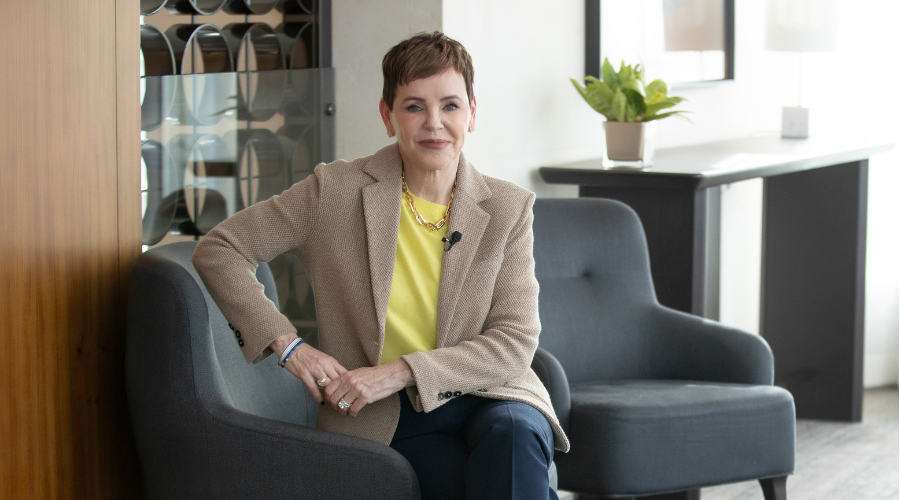The American Dream was invented during the great Depression. In Canada, we haven’t embraced an overriding cross-generational giddy expectation such as this one, but we do share the belief that things will improve, steadily and slowly for each succeeding generation.
U.S. figures show that’s not case. In The New York Times, op-ed columnist David Leonhardt, points out that the opposite is true. Since the oil crisis of the 1970s, the number of Americans who make more money than their parents is going down. We know this because an enterprising professor at Stanford, Ray Chetty and his team of economists, “received access to millions of tax records that stretched over decades.”
According to Leonhardt, the “resulting research is among the most eye-opening economics work in recent years. What we learn is if you were born in the 1940s in America, 92 per cent had higher earnings at age 30 than their parents did. Achieving the American dream was a virtual guarantee for this generation regardless of whether people went to college, got divorced or suffered a layoff.”
Think about it: all the factors that minimize the chance of that happening today were overshadowed for war babies by the growth in wages. Not so for baby boomers. As the world economy was transformed by the oil crisis in the 1970s, our life choices –or our luck– became more important than growth in the GNP.
That statement is backed up by the Canadian Index of Wellbeing compiled by the University of Waterloo. The Canadian Index definitely shows that baby boomers aren’t doing quite as well as expected, and their children are doing worse. That puts those of us born in the 1950’s and 1960’s in a double bind. Not only are we squeezed by stagnating middle class incomes, but our kids need help more than ever, if they’re to finish university and buy a first home.
In the meantime, the message is that we’ve been negligent if we haven’t saved enough for retirement, if we’ve retired with debt, if we’ve divorced or re-married, if we’ve remained single or if we enjoy spending some of our cash on ourselves.
Case in point: I apologize at least once a day, to anyone who will listen, about still carrying a mortgage, although my home is by far my biggest asset. Buying a new home three years ago and taking on a small mortgage was probably the most sensible financial decision I’ve made. The equity in my home will take me through my retirement and possibly into a retirement home, if and when the time comes.
At the National Institute on Aging conference I recently attended in Toronto, one of the brightest ideas to emerge was the call for the creation for a central hub where Canadian seniors could reference information about ageing. A national seniors strategy for Canada needs to include different ways to remain independent, productive and engaged in society as we age. People make decisions on the information available to them and right now the information for seniors is not located in one easy-access portal.
Retirees and those approaching retirement require more help making informed choices based on solid information. That includes access to the latest information about health care, pensions, transportation and, most importantly, how to finance retirement.
Research shows that growing numbers of seniors carry debt, do not retire with sustainable pensions or haven’t managed to save adequately for retirement. Rather than being ashamed of past life experiences or unfortunate decisions or simply not earning enough money to finance a secure retirement, why not discover solutions to making retirement as safe, secure and enjoyable as possible?
Today the average Canadian lives for 21 years off pensions, but less that 50 per cent of those 55 to 65 years of age know what they will need to fund their retirement. Increasingly seniors, 42.5 per cent of us, carry some debt, an increase of 55 per cent since 1992.
As vice-president of marketing at HomeEquity Bank Richard Valentine commented in his address to this conference, the critical question is “how to stretch income heading into or being retired.”
Valentine’s solution, at least partially, is for baby boomers to educate themselves to be more financially literate. He stated that 90 per cent of older Canadians are coming to HomeEquity from a digital source and his idea is to create one source of information for seniors, which brings public and private information together.
Karen Henderson, the founder and CEO of the Long Term Care Planning Network agrees. Her goal is to provide solid knowledge about the ins and outs of long term care, which is much more complicated than meets the eye. “Most long term care takes place at home,” Henderson says, “with the average time in a long term care facility only lasting three years.”
As I look forward to 2017, I also look backward to what I learned in 2016 about ageing and retirement. The first thing is that unless we were top earners or inherited wealth, current retirees do not have it as easy as portrayed by the popular media. The second is that we have harsh and unrealistic expectations placed upon us during retirement. Third, that we can find solutions to managing those expectations by becoming more informed and more adept at handling financial, familial, work and health related decisions.
It’s up to us to call for a comprehensive source of online information for seniors. Public libraries could help make this service available to communities across the country.































